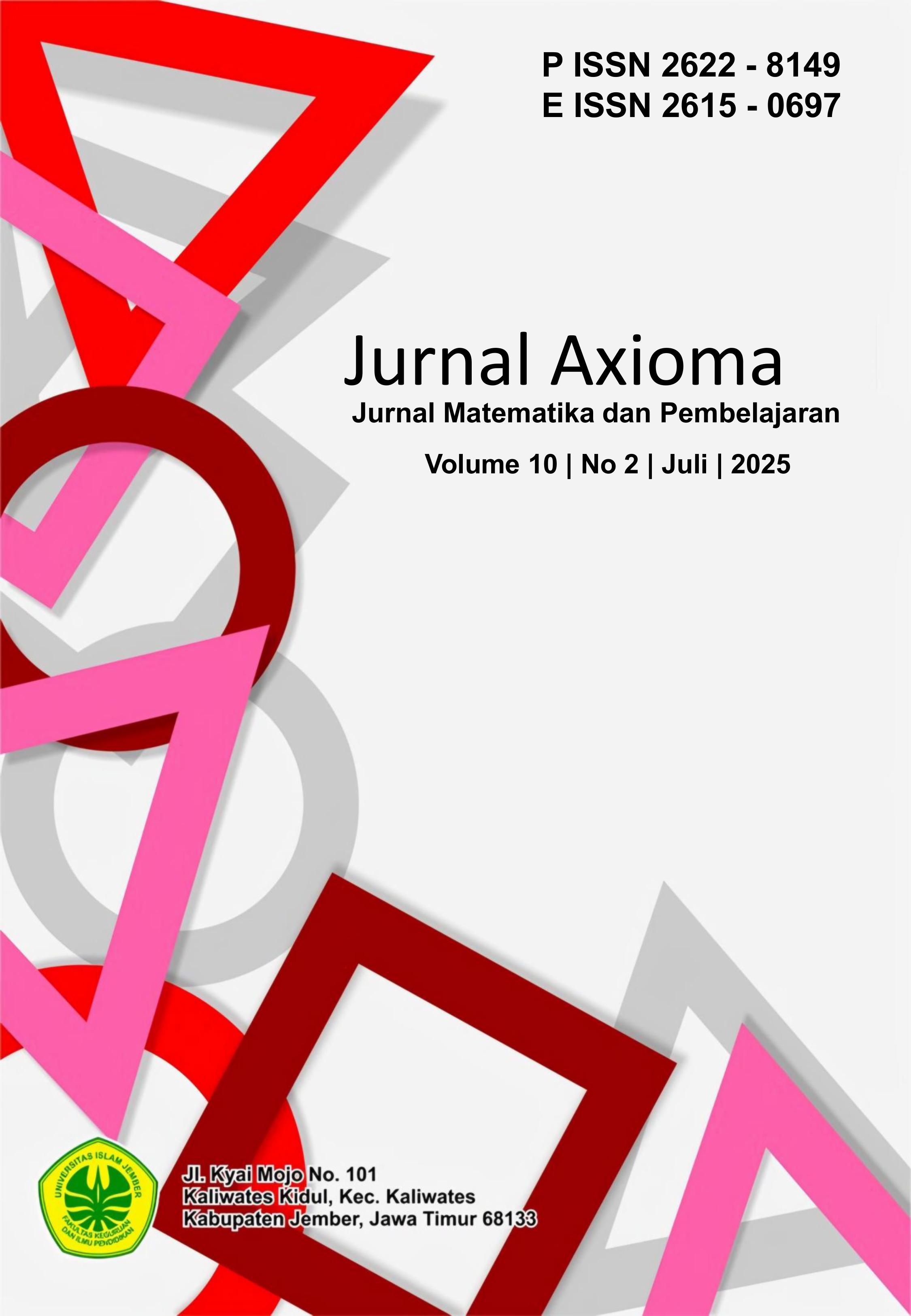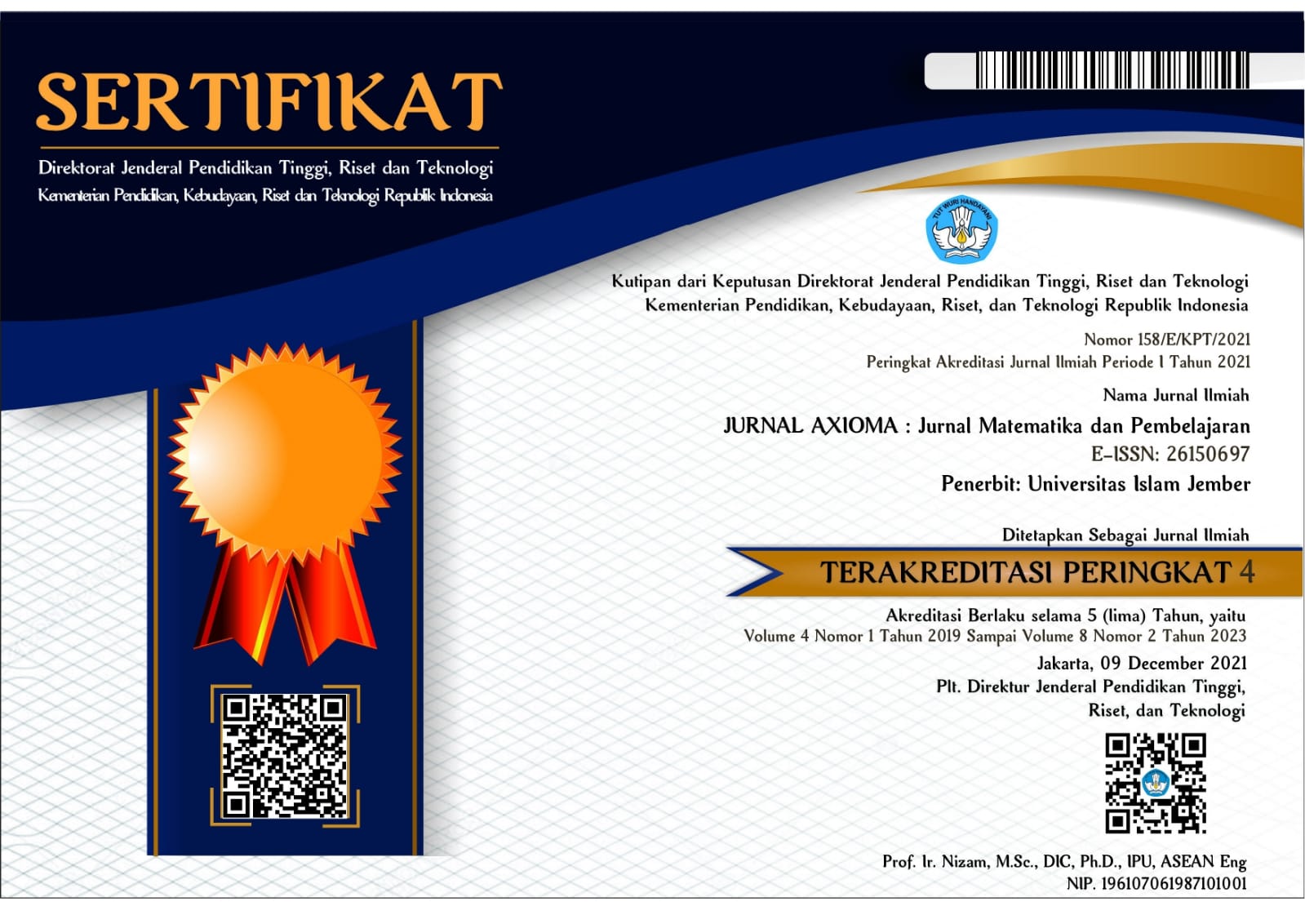Integrasi Augmented Reality dalam Pembelajaran Matematika: Tinjauan Teoretis Pendekatan Kognitif dan Visualisasi Spasial
DOI:
https://doi.org/10.56013/axi.v10i2.4298Abstract
This research aims to examine the integration of Augmented Reality (AR) technology in mathematics learning in terms of the cognitive approach and the role of spatial visualization. The problem of low understanding of abstract mathematical concepts and weak student motivation to learn is an important background for the need for technology-based learning innovation. The method used in this research is a literature study by analyzing various scientific sources over the last ten years, both in the form of journals, books and relevant research reports. This study focuses on the use of AR in mathematics learning in relation to cognitive theories such as Cognitive Load Theory and Dual Coding Theory, as well as its contribution in improving students' spatial visualization abilities. The results of the study show that the use of AR can significantly increase understanding of mathematical concepts, learning motivation and student engagement. AR is also effective in conveying information multimodally which supports optimal information retention and processing. However, the effectiveness of AR implementation is highly dependent on teacher readiness, suitability of content, and infrastructure support. Therefore, the integration of AR in learning needs to be accompanied by teacher training and mature implementation strategies in order to be able to answer the challenges of mathematics learning in the digital era.
Keywords: Augmented Reality, mathematics learning


2.jpg)
.jpg)











